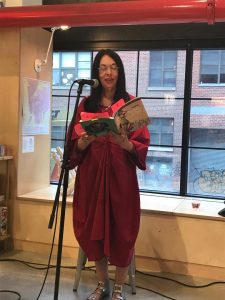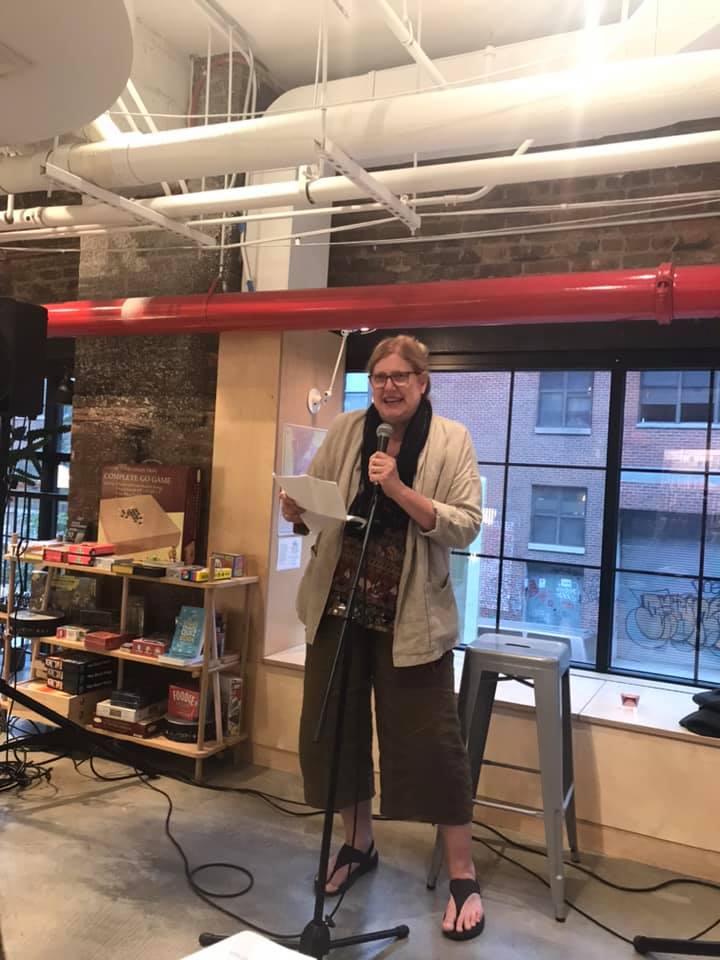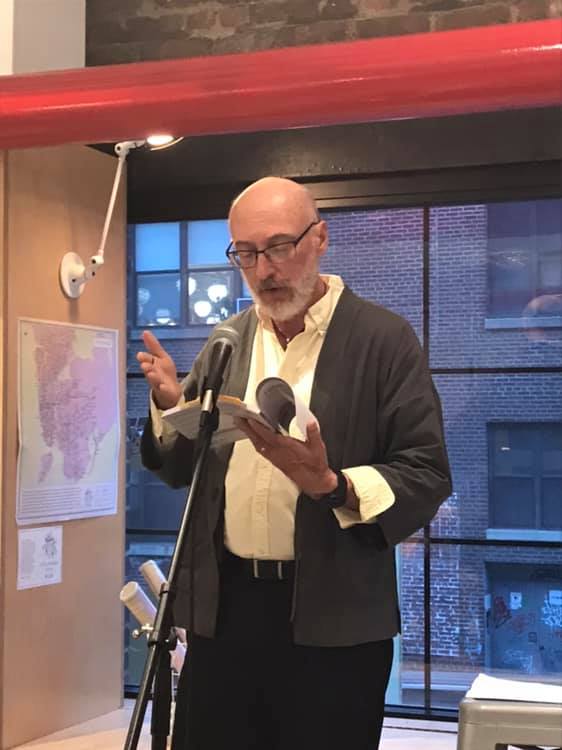I will begin
with Jill Hoffman, the self in The Gates of Pearl is a complex of mother
and daughter in three modulations or modalities: a mother’s no-holds-barred, shamelessly
honest, pained journal entries; an extraordinary history of mother-daughter
intimate, barrier disrupting telephone conversation; the fierce/sensitive voice
of the daughter as it is born into a poetry of hard biting bursts of rich language
that speak sometimes with image, sometimes with direct statement, but always
distinctly, seeking to come to terms with the mother’s journal disclosures, with
the shockingly frank ongoing telephone conversation and with the
poet-daughter’s self. (I hope I am not mistaken here, but it seems to me that the
intensity of the daughter’s writing both counterbalances and parallels the intensity
of the mother’s journal, while the phone conversations mediate between, or
perhaps amplify the mother’s and daughter’s individual writings. I say this
even though the chronology of the various “compositions” might suggest
otherwise.) I think of “The Gates of Pearl” as a “poem,” for I believe this
work is a single long poem made up of individual pieces that easily stand on
their own. the language throughout is tight, lyric and revelatory. from a
writing point of view, the undertaking is conceptually ambitious—three very
different, very powerful voices being compelled by the circumstance of the book
to engage with one another. from a reading or listening point of view, the
execution is haunting and enriching
Dell Lemmon read
next. characterized by a deceptive, seeming artless writing style, her poems discover
startling connections between elements of the everyday. hers is a sensibility
that offers up a primer on the remarkable that resides in the unremarkable. the
individual poems seem to inadvertently come upon hidden complexities in the details
and routines of ordinary life, complexities that are not typically recognized
as bearing upon one another. layer is peeled from layer and gratifying
revelation is the reward. I think I had the sense that as the writing, wends
its way through the commonplace, discovering unexpected links, the poet is as
much surprised and delighted as the listener. from a listener’s point of view,
that is, in and of itself, an uncommon delight. and, again, a delight that is
very much enhanced by straightforward language spoken in the matter-of-fact
tone of everyday talk—which, now that I think of it, is the most appropriate
way to say what these poems have to say. from beginning to end, what they say
and how well they say what they say are a happy surprise
next to read,
E.J. Evans. I think I have never experienced writing that is so unrelentingly hell
bent on creating distance by impersonalizing that which is most personal. the
logic of the undertaking is subtle and courageous. the language, while mostly
“technical,” strays just often enough into the lyric and the personal as to
hold breathlessly the reader’s/listener’s attention, so validating the paradox
of a seeming emotionless study of emotion. the writing diagrams experience in
such meticulous detail that the experience, or exploration, being described
seems to transcend the description, perhaps a paradox within a paradox. the
tech-writing style of the work pushes the impersonal into a most surprising
personal place. while it may seem counter intuitive to describe the style of
writing as abstract, I think that it may fairly be said that the writing in its
determination to get to the core of some particular want or desire so finely
parses it, deconstructing it down to its tiniest elements, that the language
and the sensibility break want and desire down into abstractions of themselves.
truly fascinating. truly remarkable. truly satisfying
in short, I had
a great time listening at the time; and later, in my recollection of the
evening, revisiting the experience and coming to a fuller appreciation of what
had taken place for me that evening. to go out on one more limb, I might say
that the first reader gave us poetry as a work of art; the second reader gave
us poetry as philosophical ruminations; the third reader gave us poetry as
scientific treatise. in all instances, however, a study in connections. and, as
I said, the three “styles” of connecting connecting with one another
–Allen Brafman




Comments are closed.